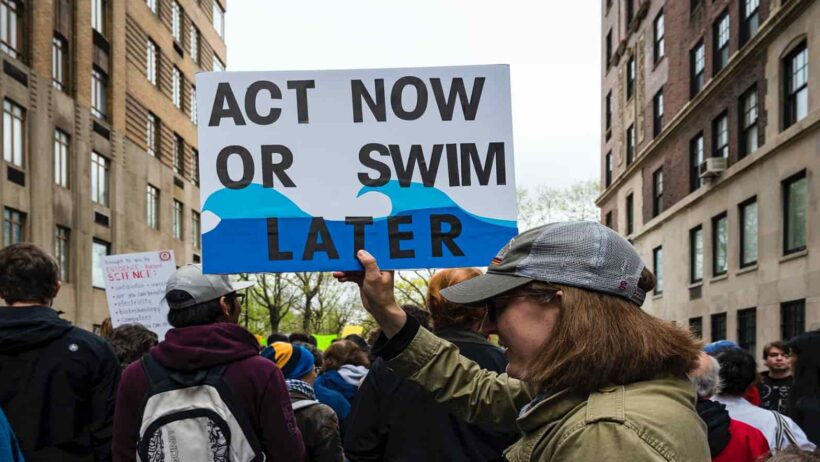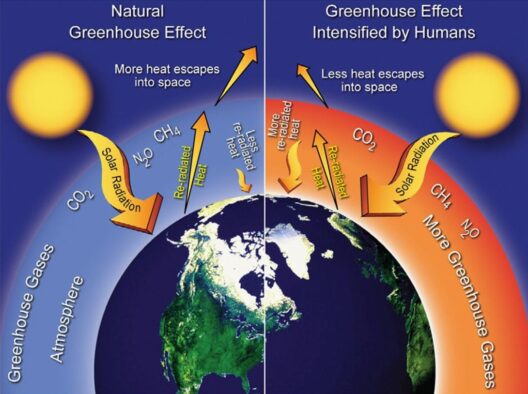Global warming is a pressing issue that continues to escalate, threatening ecosystems, weather patterns, and human well-being. However, individuals possess the unique power to effect change through simple yet impactful actions. By addressing our day-to-day habits and choices, we can collectively contribute to mitigating climate change. Here’s an extensive look at how humans can help stop global warming, focusing on assorted actions that yield significant environmental benefits.
Embracing Renewable Energy
The transition from fossil fuels to renewable energy sources such as solar, wind, and hydroelectric power is paramount in reducing greenhouse gas emissions. Individuals can take action by opting for renewable energy plans offered by utility companies. For those able to invest, installing solar panels not only decreases reliance on conventional energy but can also decrease energy costs over time. Even simple actions like using energy-efficient appliances contribute to lower energy consumption.
Conservation of Resources
Practicing resource conservation is pivotal. Simple actions include turning off lights when leaving a room, unplugging devices not in use, and using public transportation, carpooling, or biking instead of driving solo. Water conservation is equally important; utilizing low-flow faucets and collecting rainwater for gardening can significantly diminish resource depletion.
Reducing Waste
Waste reduction plays a critical role in combating global warming. Individuals can adopt the “Three R’s” philosophy: Reduce, Reuse, Recycle. By minimizing consumption—foregoing single-use plastics and opting for reusable bags, bottles, and containers—people can drastically cut down on waste. When recycling, it is essential to be aware of local recycling guidelines to ensure that materials are correctly processed. Composting organic waste not only reduces landfill overload but also enriches soil.
Sustainable Transportation
The transportation sector is a significant contributor to greenhouse gas emissions. To mitigate this, consider alternatives to gasoline-powered vehicles. Public transportation systems, cycling, and walking not only reduce one’s carbon footprint but also promote healthier lifestyles. For those who must drive, opting for electric or hybrid vehicles presents a more sustainable choice. Additionally, advocating for better public transportation infrastructure can promote a shift away from fossil fuels.
Mindful Consumption
How individuals consume goods greatly influences carbon emissions. Prioritizing locally sourced, organic produce not only supports local economies but also reduces the carbon footprint associated with food transportation. Additionally, individuals should be mindful of fast fashion’s environmental toll by choosing sustainable clothing brands or shopping secondhand. Every purchase made can align with environmental sustainability, creating a ripple effect in consumer behavior.
Contributing to Reforestation
Forests play an essential role in sequestering carbon dioxide from the atmosphere. Participating in or supporting reforestation efforts can substantially help mitigate climate change. This can be achieved through donations to reputable organizations engaged in tree planting or volunteering for local initiatives. Furthermore, planting trees in your community not only combat climate change but also enhances local biodiversity.
Advocating for Change
Active participation in community engagement initiatives amplifies personal efforts in the fight against global warming. Educating others about climate change and its repercussions is vital. Getting involved in local advocacy groups, attending city council meetings, or organizing climate-awareness campaigns can instigate policy changes at a broader level. A demand for legislative changes that prioritize environmental protection can lead to significant industry-wide shifts.
Understanding Your Carbon Footprint
Awareness is a powerful tool in tackling global warming. By assessing your carbon footprint, you can identify major areas where emissions can be reduced. Various online calculators are available to help individuals understand their contributions to carbon emissions and provide personalized recommendations for improvement. Recognition of individual impact promotes accountability and targets specific areas for change.
Educating Future Generations
Education is integral to stemming the tide of climate change. By educating children about sustainability and the importance of environmental stewardship, we cultivate a generation that values and prioritizes ecological health. Activities such as nature walks, gardening, and environmental science projects can instill deep-rooted respect and responsibility towards the planet.
Engaging in Policy and Legislation
Advocacy for progressive environmental policies is crucial in the larger context of the climate crisis. Individuals can lobby for renewable energy incentives, stricter emissions regulations, and sustainability standards in local laws. Engaging with local representatives and participating in peaceful protests reinforces the demand for systematic change.
Supporting Sustainable Companies
By choosing to support businesses committed to sustainable practices, individuals can push companies to adopt greener policies. Firms that prioritize eco-friendly methods in their operations and supply chains contribute to a broader reduction in carbon emissions. Consumers can utilize platforms that review corporate sustainability efforts, thus making informed choices aligned with their values.
Participating in Climate Action Movements
Collective action amplifies individual efforts. Joining climate action movements fosters a sense of community and provides a platform for shared knowledge and experiences. These movements often host events, workshops, and rallies that accelerate advocacy efforts, bringing more significant public attention to climate issues.
To conclude, addressing global warming requires collaborative and persistent efforts across various fronts. Every individual action counts and contributes to a larger movement aimed at sustaining our planet. From embracing renewable energy to advocating for policy change, simple actions can forge a path toward a healthier climate, ensuring a viable future for generations to come.






